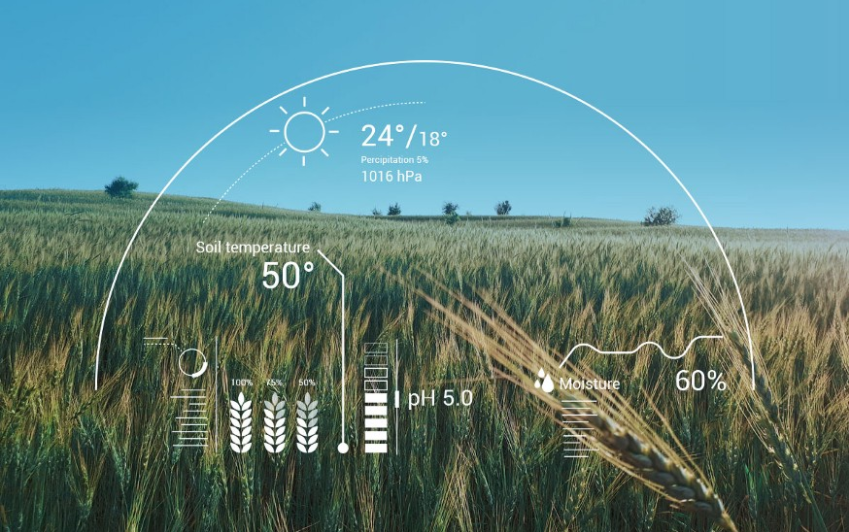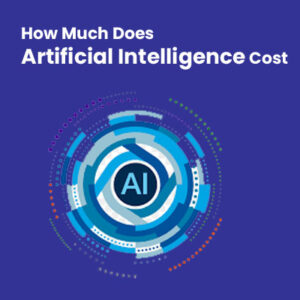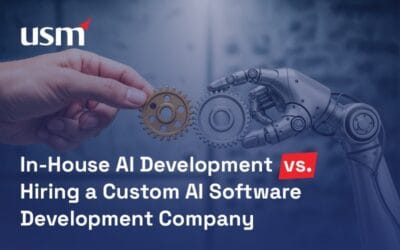AI In Agriculture– Use Cases, Benefits, and Future
The Impact of Artificial Intelligence in Agriculture
AI in Agriculture: Challenges, Benefits, and Use Cases – USM
Artificial Intelligence (AI) is one of the modern technology that is being used by many industries, including agriculture. AI technologies, such as Machine Learning (ML), deep learning, computer vision, and predictive analytics are entering every sector and boosting efficiency and productivity.
AI software applications and solutions are reshaping the traditional workflows of every business. The impact of artificial intelligence in agriculture, manufacturing, education, e-commerce, and FinTech-like industries would be promising in the years ahead.
Like other sectors, the use of AI drones in agriculture are in trend across the world. AI in the Agricultural industry is witnessing tremendous growth in recent past years. Driven by increasing population, climate conditions, food quality, quantity, and security issues, the agriculture sector needs to be more technically advanced for improving crop yields.
To achieve this, the agricultural industry is increasingly adopting various applications of artificial intelligence in agriculture and automating 70% of manual tasks, remotely monitoring the crops’ health and generating higher yields.
In this article, we have given a brief guide on the significance of AI in the agriculture industry, a few major applications of artificial intelligence in agriculture, and we will also have a brief on. We would walk you through how AI and drones in agriculture are evolving and playing a vital role in monitoring the crop’s health.
Let’s move on to our topics.
AI In Agriculture Industry
How AI can be useful in agriculture
Here are the best applications of AI in the agriculture sector.
-
Crop and Soil Monitoring
AI drones in agriculture are being used in agriculture for remotely and continuously monitor the quality of soil for ensuring the healthy growth of the crops.
Organizations are taking advantage of computer vision & deep-learning algorithms to process the information or data received by the drones to keep an eye on crop & soil health.
Trace Genomics is a California-based organization that offers soil study services to farmers. Trace Genomics raised $8 million in funding on an equity basis from six companies in February 2017.
Illumina, a leading biotechnology company in USA, is building intelligent AI and ML-powered systems that allow farmers to measure the quality of the soil. These AI systems will help in finding defective crops & optimizing the probability of healthy crop development.
By giving a detailed summary of field soil contents, ML and AI applications in agriculture will give insights into the quality of the soil and help farmers in taking immediate decisions towards improving the quality.
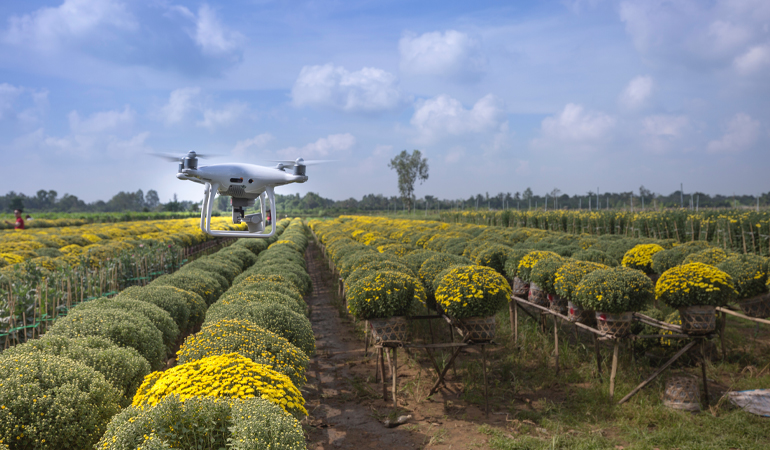
For the first time, drone technology is used in Japan in the year 1980 for crop dusting. Today most companies are taking advantage of AI in agriculture & aerial technology to keep an eye on crop health. The company’s primary endeavor is to decrease costs and improve crop growth. Users pre-program the drone’s route to fly across the crop. Using the computer vision features, AI applications will record crop pictures that will be used for examination.
AI-powered drones utilize different algorithms to amalgamate & examine the taken pictures. It provides a detailed report on the health of crops.
Drone images will help AI applications in agriculture in detecting diseases like bacteria and other functional infections to the crops.
Driven by such predictive insights and analytics, the demand for AI and drones in agriculture is increasing worldwide. Based on estimation, the market for drones agriculture is projected to reach $480 million by the end of 2027. Intelligent AI drones can scan 50 acres of land in just minutes & gives data insights with 95% accuracy.
-
AI-powered Smart Robotics Harvesting
Currently, everything is automating at a rapid speed that helps to handle the challenges that are faced by workforce labor. According to the sources, it is estimated that there will be a 6% decline in agricultural work by 2024.
The lack of laborers leads to the loss of million dollars in crucial farming areas like Arizona and California. To overcome this situation, the farmers were increasingly investing in AI apps.
The agricultural industry is adopting AI-powered robots for automating tasks and reducing manual power. According to research analysts, AI robots can harvest approximately 8 acres in just 24 hours. It means the crop owners can reduce human laborers and overheads by replacing AI robots.
-
AI Applications Detect Pests or Weeds
Currently, weed control became the primary concern for the farmers, and that is an ongoing defy as herbicide conflict becomes a routine place.
According to an estimation, 250 various types of weeds have to turn out to be defiant to herbicides. In another research, they stated that the effect of uncontrolled weeds on soybean crops and corn made losses of around $43 billion for farmers.
NCBI sources say that more than 1 billion pounds of pesticides are utilized in the agricultural field annually in the USA.
The Role of artificial intelligence in the agriculture sector, helping farmers to find various competent approaches to safeguard their farms from pests or weeds.
Blue River Technology (leading digital solutions developer in California, USA) is creating computer vision, machine learning, and robotic solutions for the agricultural industry. The company’s See & Spray robot uses computer vision algorithms to monitor and accurately detect weeds and help farmers prevent herbicide resistance in the crop.
According to the Blue River Technology sources, precision technology will get rid of 80% of chemicals that are usually sprayed on crops, by which we can decrease herbicide costs by 90%.
Hence, whether you use AI in farming in India or AI in farming USA, the results are unbeatable and incredible. Farmers can monitor weeds growth remotely, control pests, and yield healthier crops.
Get the best quote for AI app development!
-
AI Agricultural Apps To Forecast Weather
It is one of the top-most applications of artificial intelligence in agriculture. AI in agriculture industry plays a key role in analyzing the weather conditions. The data insights into weather derived from AI apps will help farmers plan their farming functions.
For instance, intelligent AI applications in agriculture will gives the best time for sowing seeds based on weather conditions.
-
AI Predictive Analytics
It is a top application of AI and its tools. Learning models are developed to trail & forecast various environmental effects on crop yield like weather changes.
aWhere is a company that uses ML (Machine Learning) algorithms in association with the satellites to investigate crop sustainability, predict the weather, and assess farms to know about the existence of pests & diseases.
There are different types of clients for the website, such as farmers, researchers, and crop consultants. The company is very good at delivering high standard data or information that is perpetually updated at a quick rate.
If you do not agree with my statement then watch the below video:
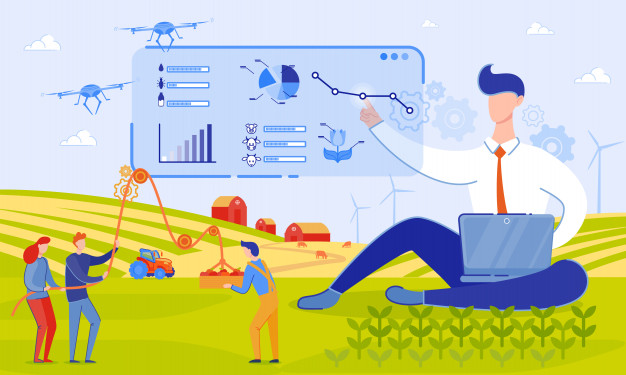
The company is very much confident about the data it provides for its customers with admittance to more than one billion stacks of agronomic data regularly. The data sources such as precipitation, wind speed, solar radiation, and temperature, along with comparisons to the historical values on the agricultural earth.
These are a few top use cases of AI in agriculture. AI and drones in agriculture, AI in farming and harvesting, automatic weeding, crop and soil management, plant sorting, AI robots for harvesting, and use of AI for entire crop management are trending applications of AI in agriculture. Hence, the impact of artificial intelligence in agriculture would be mindboggling in the next coming years.
Future Of AI In Agriculture
The future of AI in agriculture for automating end-to-end crop operations will be promising. From seed sowing, soil quality tracking, weed removal, crop harvesting, and supply chain visibility, AI applications, systems, and devices will assist farmers in all ways.
On the other hand, AI along with IoT and computer vision is another revolutionary move in the agriculture sector for monitoring and controlling pests and other insects. AI in farming India, AI in farming USA, and AI drones in agriculture will be anticipated to transform industrial operations and take the sector to new heights.
Final words
Artificial Intelligence in agriculture assists farmers in automating crop management functions. As we are rapidly making changes according to the needs of the digital world, the future of AI in agriculture will boost operational efficacy and crop management functions.
Agricultural robots are perched to become the most-valued apps of AI for agriculture. Currently, more than thousands of milking robots are operating in dairy farms. This segment is expected to increase to $8 from $1.9 billion by the end of 2023. It is practicable that the robots will be built to fully increasingly diverse tasks in the next coming 3 to 5 years.
Crop & soil monitoring technologies are also crucial as climate alter to be researched &investigated.
The amount of information captured by drones & satellites regularly will give an agricultural business a new facility to forecast changes and identify opportunities. We also estimate that satellite MVA (Machine vision applications) will become more & more commonplace for large enterprises in the coming up of 5-10 years.
So, it’s better if farmers are equipped with training about the latest advancements and make sure that they use those technologies to improve continuously. It will be useful in enhancing the importance of the tools over the long haul.
As the various environmental factors impacting agriculture, it is good to have extensive testing & validation of emerging AI applications because, in this industry, we cannot easily predict the risk.
We hope that the agricultural sector will continue to see the stable implementation of AI & it will continually change according to the recent trends of AI.
Applications of Artificial Intelligence in Agriculture
Are you looking to integrate AI services to transform your agricultural operations?
Hire the best AI services and solutions provider in the USA or India. Contact Us.

